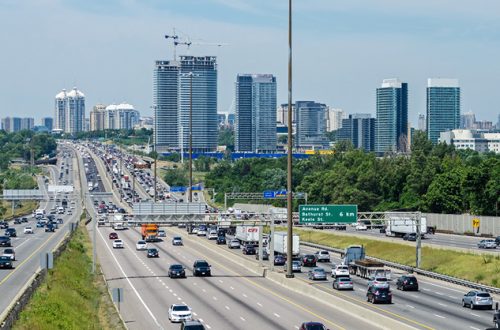What is a carbon tax and what is the reasoning behind implementing one?
—
Putting a price on carbon emissions, or implementing a “carbon tax”, means making businesses and individuals pay for pollution. It places a price on the production, distribution or use of fossil fuels based on how much carbon is emitted. When the government sets a price per ton on carbon, it seeks to change business and consumer behaviour. Since the tax makes the use of fuel more expensive, it seeks to encourage individuals and businesses to reduce emissions and look for cleaner energy alternatives.
What are the benefits and drawbacks of a carbon tax?
—
Benefits
- Evidence suggests that a carbon tax reduces green house gas (GHG) emissions
- Encourages further investment in environmentally friendly production processes
- A predictable and stable method, since firms know the price of carbon
- Revenue generated can be spent on environmental initiatives
Drawbacks
- Can be hard to measure how much carbon is actually emitted
- Can lead to possible tax evasion by masking the true levels of pollution
- May discourage business investment, with firms shifting production to jurisdictions without a carbon tax
- Businesses might just pass along the burden of the tax to consumers in the form of higher prices
Federal Carbon Pricing
—
The Government of Canada’s carbon pricing plan came into effect on January 1, 2019. This carbon tax is $20 per tonne of CO2 emissions for 2019, and will increase at a rate of $10 per tonne per year until 2022, when the price will reach $50 per tonne. This federal pricing is ONLY applicable in those provinces that do not have a system of their own that meets the following criteria:
1. Carbon pricing needs to be applied to the same key sources of GHG pollution across the country, to ensure that it is effective and fair. At a minimum, carbon pricing should apply to the same sources of GHG emissions as British Columbia’s carbon tax.
2. Provinces can choose which type of system to implement: either (i) a direct pricing system (such as a carbon tax like British Columbia’s or a carbon levy combined with a performance-based emissions system like Alberta), or (ii) a cap-and-trade system (e.g., Quebec).
3. The stringency of the carbon pricing system needs to increase over time and this should be based on legislation – to provide certainty to businesses and consumers and contribute to our national GHG emission reduction target.
- For jurisdictions implementing an explicit price-based system, the carbon price should start at a minimum of $20 per tonne in 2019, and rise by $10 per year to $50 per tonne in 2022.
- Provinces with a cap-and-trade system need to have
(i) a 2030 emissions reduction target equal to or greater than Canada’s 30 percent reduction target; and
(ii) a cap-and-trade system with declining (more stringent) emission caps (to at least 2022) that correspond, at a minimum, to the projected emissions reductions that would have resulted from applying the direct carbon price that year (e.g., the reductions that would have resulted from a $20 per tonne direct price in 2019).
4. Jurisdictions should provide regular, transparent and verifiable reports on the outcomes and impacts of their carbon pricing policies.
University of Calgary research reveals that when the $10 per tonne tax is imposed, households in British Columbia will pay an additional $121 per year, and up to $224 more a year in Nova Scotia. This is assuming consumers do not change their behaviour, and do not drive less or purchase electric or fuel-efficient vehicles, which the tax also aims to do. At the same time, the Government of Canada plans to send annual rebates to Canadian families to offset some of these additional costs.
The Government of Canada believes that the federal carbon plan will allow the country to meet its Paris Climate Accord emission reduction targets of 17% below 2005 levels by 2020, and 30% by 2030.
However, the Ontario government has taken strong steps against any form of carbon pricing. The Ford government cancelled Ontario’s cap-and-trade system, and its most recent Made in Ontario Environment Plan does not mention any intention of moving forward with any carbon price, stating that the people of Ontario have already contributed their fair share to reducing greenhouse gas emissions.
On January 21, the Ontario Society of Professional Engineers attended Premier Doug Ford’s address at the Economic Club of Canada, where Premier Ford stated that “the risk of a carbon tax recession is very, very real” and that “you can be for a carbon tax or you can be for manufacturing jobs… but you can’t be for both.”
However, economists around Canada have started to dispute such claims. Nancy Olewiler, economics professor and Director of the School of Public Policy at Simon Fraser University stated that “there could be a recession, but the carbon tax would have nothing to do with it.”
Legal experts have also concluded that the Ontario government’s battle to try and stop the imposition of a federal carbon tax will most likely be lost, since experts claim the federal government has the authority to enact a carbon price, if the province does not have one.
It seems like carbon pricing will be one of the most contentious issues driving provincial-federal relations in 2019.
What do you think about the federal government’s carbon plan? What should Ontario do?





Comment (1)
I support the carbon tax and am disappointed in politicians who will not listen to people with more expertise than they have. Ideology will not solve our problems, but unfortunately we we are stuck with a government that wants to pass all our problems onto the next generation rather that stepping up to the plate and addressing the problem. This is typical of all conservative type governments – no concern for the future but only interested in doing the absolute minimum to ensure they get the votes.
OSPE should issue a strong press release stating they are opposed to the government’s stand and respectfully ask the goverment to respect the opinions of others who are expert in the field. This should should apply across all government departartment and all decisions should be based on the best science available, not the current ideology of the government in power.
Leave a Comment